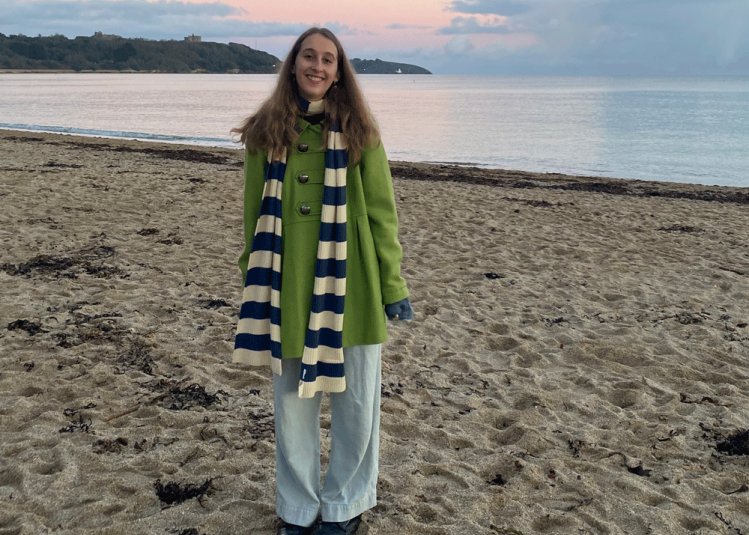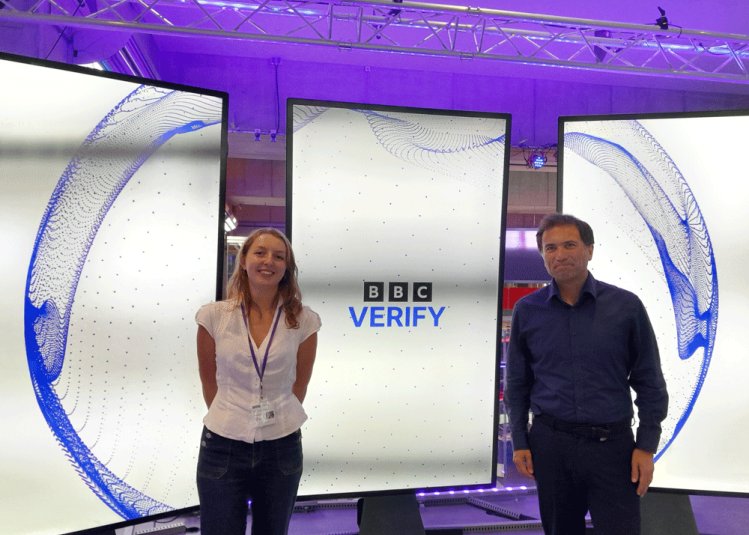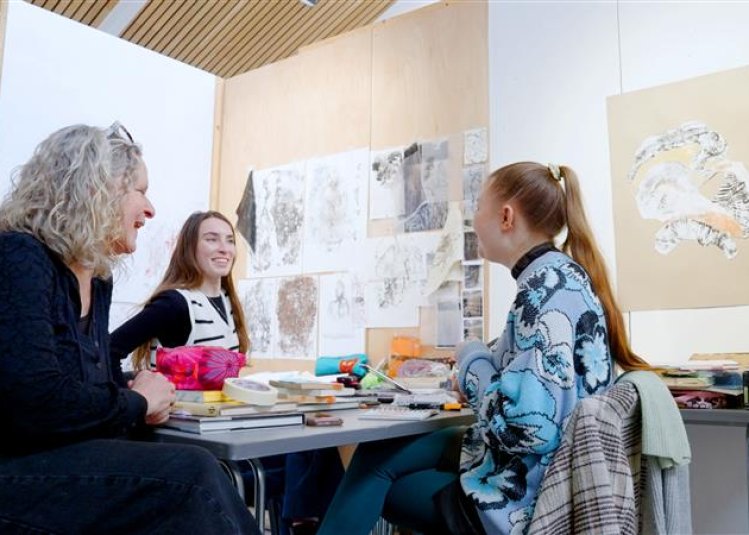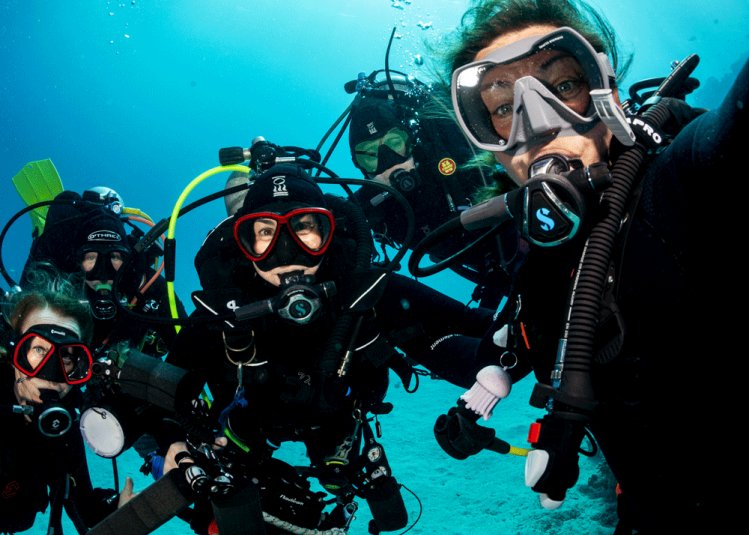Students deliver fashion show in collaboration with WRAP for Anthropy 2023
03 November 2023
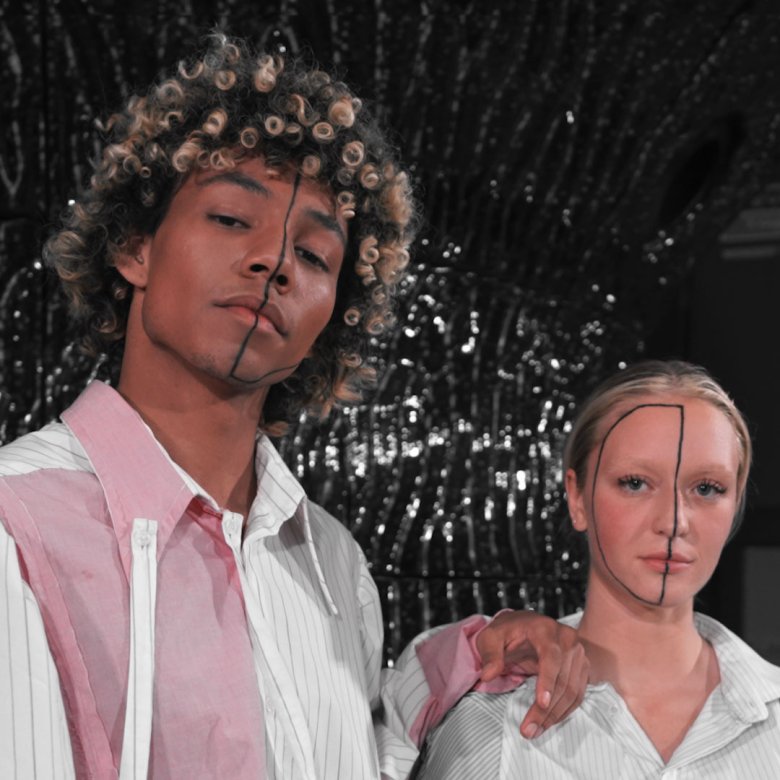
Falmouth University’s Fashion & Textiles Institute & Cornwall Business School teamed up with British charity and NGO WRAP to highlight the need to transform fashion industry practices, showcasing futuristic fashion designs using donated/waste products and materials.
Fashion & Textiles Institute staff were approached directly by WRAP and Anthropy organisers to showcase a collection of sustainable student fashion designs, which students have made in the last year to demonstrate circularity and the use of deadstock fabric. The fashion show highlighted how future fashion industry designers, manufacturers and producers can all play a role in accelerating the urgent changes needed in the fashion industry. Students from our Creative Events Management BA(Hons) and Sustainable Festival Management BA(Hons) courses helped plan, manage and deliver the fashion show.
WRAP’s award-winning Textiles 2030 initiative harnesses the knowledge and expertise of UK leaders in sustainability to speed up the UK fashion and textiles industry’s progress towards a circular economy. In anticipation of WRAP’s upcoming progress report for Textiles 2030, Falmouth’s Fashion & Textiles Institute showcased the latest industry-connected teaching and practice from staff and students as part of ongoing efforts to secure a more sustainable fashion industry.
The fashion show featured upcycled shirts with a focus on ‘circular design’, items made as part of a fabric initiative with the British Fashion Council and major brand Burberry, as well as garments made from donated quilted fabric from Suffolk-based company Lavenham.
As part of their studies, Falmouth student designers and makers have been working with the British Fashion Council as well as Burberry on a new fabric initiative helping students get access to quality fabric and to normalise the use of deadstock as part of their design practice. The scheme’s ultimate ambition is to create a simple and efficient way for brands and universities to work together and provide practical support for future talent. Students from all courses at the institute have been involved in designing, commissioning and making garments made from upcycled/recycled material, as well as deadstock/donated materials.
Student's from Falmouth's Fashion & Textiles Institute collaborated with WRAP to produce a fashion show for Anthropy 2023 at the Eden Project.
John Boddy, Head of the Fashion & Textiles Institute at Falmouth University said: “In 2022, we joined forces with key leaders across the fashion industry to launch new grassroots movement ‘Fashion Declares’ and this sustainable fashion showcase at the renowned Anthropy event is the latest step in our mission to amplify our commitment to conscious creative practice.
“Our students are already being taught about innovative sustainable processes for fashion design, the fashion industry’s relationship to global environments and communities and how to test ideas to reform the fashion system and deliver circular solutions. Students will graduate with the knowledge to make impactful changes in the fashion, textiles and costume industries."
Speaking about the importance of the collaboration, Harriet Lamb, CEO of WRAP, said: "We’re delighted to partner with Falmouth University and host this magnificent sustainable fashion show at the Eden Project. Through the show, Falmouth students are illustrating the stark realities of unsustainable production and consumption and are showcasing their design skills to help us all see what a sustainable and equitable fashion industry could look like. One which puts people and planet first.”
Third-year Fashion Design BA(Hons) student Anelia Hartmann's designs were showcased at the event. Speaking of how her studies at the Fashion & Textiles Institute has shaped her approach to circularity and ‘empathy-driven’ design, she said: “The ideas of sustainability – of which circularity is an important aspect – have underpinned our studies from day one. As well as being introduced to a wide range of ‘alternative’ pattern cutting methods and being inspired to push the way we use materials, we are constantly being encouraged to approach the design and creation process with an open mind. I feel this leads to an authentic sustainable practice, as opposed to sustainability being an afterthought, post research and design.
“I’m really excited to be a part of this generation of empathy-driven designers and feel proud that our work will contribute to the conversation around investing more wisely in sustainable business practices.”
